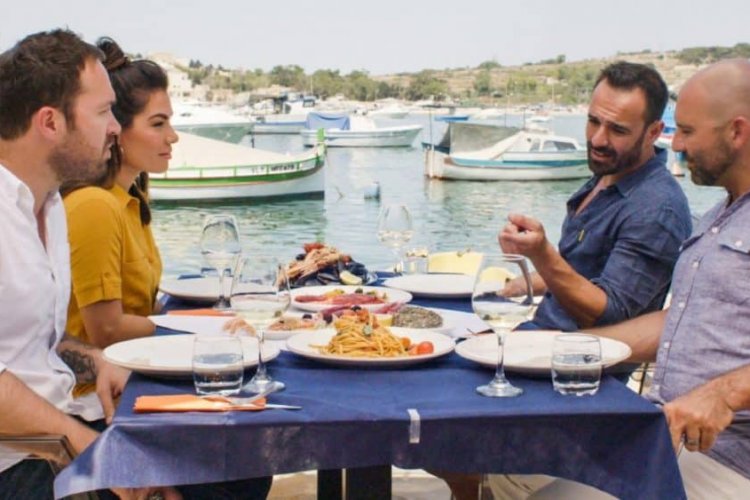Having a generous capital to start is a plus, but not knowing what to do with it or having a proper plan is not going to cut it
The circuit breaker has turned me into a Netflix junkie. One particular show that I binged is “Restaurants On The Edge’. Hosted by chef Dennis Prescott, interior designer Karin Bohn, and restaurateur Nick Liberato, the trio travel around the world to revive failing restaurants. Despite being situated at the most amazing locations with stunning views, these restaurants are financially bleeding from bad reviews and sub-par menus.
Working with local experts, Karin immersed herself with the city’s culture to uncover the history, stories, and inspirations to transform the most boring, bland, and dull interior to a tranquil space that will delight anyone who steps in the refurbished restaurants. Not only that, but Dennis and Nick also went on a trail to meet the local sellers, distributors and producers to find the best local resources and ingredients to kick up the most creative, attractive and affordable set of revamped menus.
While it is a reality TV show, I picked up several lessons that can be applied in business, in particular, if you are a micro F&B business owner. My experience working with some of my clients in the F&B business also provided similar insights into the key attributes that will make your F&B business sizzling like a hot plate.
In one of the episodes, the trio met footballer turned restaurant owner, Maltese professional goalkeeper Justin Haber. Despite having a restaurant perched on a beautiful waterfront with a gorgeous view of the Mediterranean Sea, he was not getting the traffic he wanted. Jason shared that his motivation behind launching his restaurant business was his passion for fishing, and he wanted to reflect that passion in his seafood restaurant.
On a more serious note, it is to sustain a better and stable future for him and his son. Justin had pumped all his life savings from his pro football career on this restaurant, and to see it fail was not an option. Unfortunately, he was facing a big problem in bringing in customers without much business knowledge and experience. With a little help from the three experts, Jason’s seafood restaurant got an incredible transformation and has continually helped him to thrive even today. Watching all these episodes have highlighted several things that all inspiring micro F&B owners can learn from.
Passion alone will not bring in the dough. We all know that entrepreneurship is a fulfilling journey. You are the brainchild and innovator behind your product and responsible for its growth and scalability. While passion is key, having a good business plan, marketing strategy, and business knowledge are attributes that will make the journey less painful. Having a generous capital to start is a plus, but not knowing what to do with it or having a proper plan is not going to cut it. Even if your restaurant or outlet is facing the most beautiful view, not doing enough research on what your customers want is going to put your effort in vain.
Find out what your other competitors are serving, which you are not, and what customers will pay to spend a day at your restaurant or enjoy your food. Putting up a business plan consisting of your product offerings and its unique selling proposition is the most important aspect of the business. You also need to plan your operational, logistics, marketing, administration, and human resources strategies, which should all come into play to help you achieve your goal.
Do not sell a product but an experience. In this particular show, we identify Jason as a well-known Maltese football star and a national icon. That alone has got him personal branding. Imagine your local celebrity having an F&B outlet, you would want to rave about your experience of being there and if you are lucky, get a chance to meet your idol! For Jason, I am sure people would love to talk about their dining experience in a restaurant owned by a national icon.
However, a good brand, in this case, is beyond Jason’s popularity. It is also what the restaurant offers – in this case, the customers want a five-star meal and dining experience – which Jason initially struggled with. Being a successful entrepreneur takes a combination of factors. It is beyond selling a product, but it is creating an experience for your customers. If your brand is able to motivate them to spend the money to get the best of both worlds, that’s where your brand value lies.
Value and take customer’s reviews seriously. We all know that having a product is one thing, but you need customers to believe in your product for your brand to soar in the market. In the world of digital and social media, customers provide their reviews and feedback on the go. They share their experiences, from the atmosphere to the food, the service staff, right down to the cutlery and the tablecloth on social media. People will read them, which will be a motivational factor for you to continually strive to be better to reap more customers through your door. Take time to acknowledge and respond to their comments, feedback, questions, and suggestions. Make your customers feel valued. If you make them important, they will come back again and again.
Learn to collaborate and be resourceful. One observation I made from the show was that many restaurant owners prefer to look outside of their city to acquire items from seafood, meat, wine, and other produce for the restaurant dishes. More often than not, it is more expensive to get these products, so their menu is set at a higher price. When quality is not matched with the price, it will not go down well with our customers. Dennis and Nick taught us that finding local products and ingredients, and working with local suppliers can save costs. Throw in a little creativity and experimenting with the right spices and ingredients, your dishes can pass as a five-star standard. The big lesson here is to work with local partners and suppliers that will lead to a win-win situation.
Build a strong team that shares the same vision. Running a business is not a solo feat. Yes, while you may be the person behind the company’s success, there is also a strong power engine consisting of your team that makes it all happen. In the case of Lemaq, a Singapore based nasi Padang stall, all team members share the same vision. The chef, the service staff, cashiers, kitchen staff as well as their social media agency works hand in hand to ensure a smooth customer experience. Choosing the right staff with the right aptitude and attitude will make the business go far. So, don’t compromise on choosing the best people for your business.
The biggest takeaway for me, while watching this show was there is no shame in asking for help. In fact, it is ok to cry and feel disappointed but the only way to get out of the rut is to make an effort to improve. Get a business coach, an interior designer, a public relations agency or a marketing and branding agency to help in any aspect of the business. There is a Malay saying,”Malu bertanya, sesat jalan” which means, if you do not learn to ask for help, you will lose your way. I guess the circuit breaker does have some benefits, and binging on Netflix may not be a bad idea. You never know, your next business idea or marketing strategy may just come from being a couch potato during this pandemic period.















